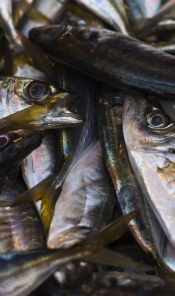- Around the Commonwealth
- Commonwealth initiatives
- In the Caribbean Commonwealth fisheries have had a greater impact on the larger countries Guyana and Belize underlined by the much more significant GDP contributions. Even though fisheries remain small and artisanal throughout the region they play an important role in employing and feeding the countries’ relatively smaller populations.
- Along with agriculture, both marine and inland fisheries remain vital to many economies in Commonwealth Africa. In Namibia, notably, the sector has grown sixfold since independence in 1990. Major challenges in the region include governance, illegal fishing and sustainability.
- The UK exports 50% of its catch (2010) whilst in the rest of Commonwealth Europe economic activities in the sector are limited.
- Much of the food, wellbeing, way of life, fiscal revenue and employment of the Pacific island member states is based on their fish stocks, especially tuna, whilst significant proportions of Australia’s and New Zealand’s fishery production are exported amounting to a few billion US dollars (2010).
- For South Asian member states the fisheries industry is a major driver and safety net for economic development and rural livelihoods. Major threats in the sector include exposure to extreme events, including cyclones, floods, and diseases.
- Malaysia has substantial marine fisheries resources with production amounting to over a billion US dollars whilst its South East Asian counterparts Brunei and Singapore have more limited resources. Local fish production in Singapore comprises mainly aquaculture produced from fish farms with small quantities from local capture.
Fisheries around the Commonwealth

Fisheries provide a rich source of income and food for the vast majority of countries in the Commonwealth. Only seven of its 54 member states are landlocked, most are islands, and larger members such as Australia, India, Pakistan, Nigeria, Canada and the UK have long sea coastlines. India is the largest harvester of fish in the Commonwealth and North American Canada the largest exporter (2010).
A summary of the industry in major regions of the Commonwealth:
Success in fisheries
The degree to which fisheries are commercially viable in many of these countries today is dependent on issues such the extent of the shelf area or exclusive economic zone (EEZ), infrastructural capacity and sustainability. Developing countries like Namibia, where marine fishing is entirely commercialised and monitored to an extent, have done pretty well with a substantial portion of the country’s harvest destined for the export markets in five different continents. On the other hand countries with fisheries dominated by artisanal methods, limited EEZs, and higher incidences of illegal fishing have found it more of a challenge.
Commonwealth initiatives: Fisheries – Our Common Wealth

Recently fisheries have received significant pan-Commonwealth policy focus. Fisheries – Our Common Wealth, a programme aimed at ensuring sustainability and improving the livelihoods of coastal communities in developing countries of the association, has been involved in activities to raise awareness and have also conducted research to help identify long-term solutions for fisheries management. The programme which ran from 2008 to 2010 was a collaborative initiative between the Commonwealth Foundation, Commonwealth Policy Studies Unit and Commonwealth Human Ecology Council. It was funded by the UK’s Department for International Development and AusAID of Australia.


